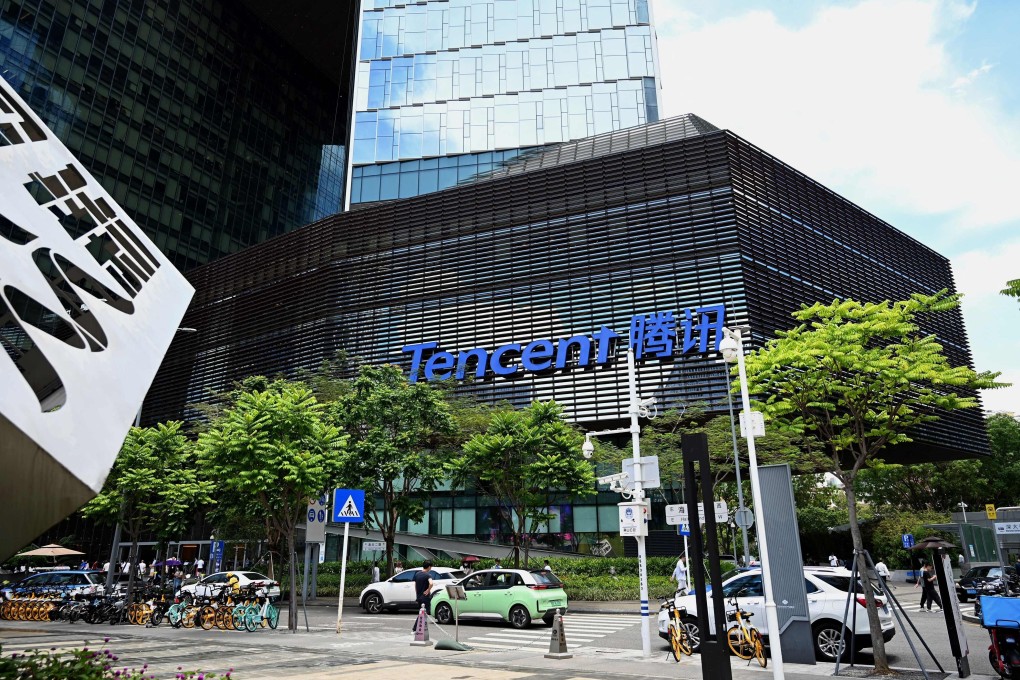Tencent’s fintech outshines gaming in revenue growth as company beats expectations amid regulatory uncertainty
- The Hong Kong-listed company reported a profit of US$6.6 billion in the quarter ended June
- The results come amid a recent stock market rout triggered by Beijing’s Big Tech crackdown, and Tencent warned of more regulations to come

The Shenzhen-based company reported a profit of 42.6 billion yuan (US$6.6 billion) in the quarter ended June, up from the 33.1 billion yuan in the same period last year and beating estimates of 30.8 billion yuan, as the Hong Kong-listed tech giant braces for further regulatory scrutiny that has already hit some of its business segments.
Revenue reached 138.26 billion yuan, up 20 per cent compared with 114.9 billion yuan for the same quarter last year, higher than an earlier consensus estimate of 138.2 billion yuan by 25 analysts, according to Bloomberg data.
“Tencent‘s main business segments are performing better than analysts’ expectations, but the market has already lowered the expectation for Tencent for the quarter, factoring in regulatory uncertainty and pressure from competitors,” said Shawn Yang, managing director of Blue Lotus Capital Advisors. “The growth could continue to slow in the upcoming quarters, and we are hoping to see if Tencent will try something new to boost its performance.”
With video game revenue growth slowing for China’s largest gaming company, cloud and fintech segments proved to be stand-out drivers of growth for the quarter. Fintech and business services revenue increased to 41.9 billion yuan, up 40 per cent year on year. The strength of fintech services reflected increasing digital payment transactions.
Other business services also increased rapidly as a result of digitalisation of public services and traditional industries during the pandemic, as well as the consolidation of revenue from the car comparison website Bitauto, which a Tencent-led group acquired and took private last year.
Social and other advertising revenues jumped 28 per cent to 19.5 billion yuan, aided by increased adoption of mini programs as landing pages in the company’s all-purpose app WeChat. That growth was also helped by more video advertising in the app’s Moments section, similar to Facebook’s News Feed, and revenue growth in Tencent’s mobile advertising network.